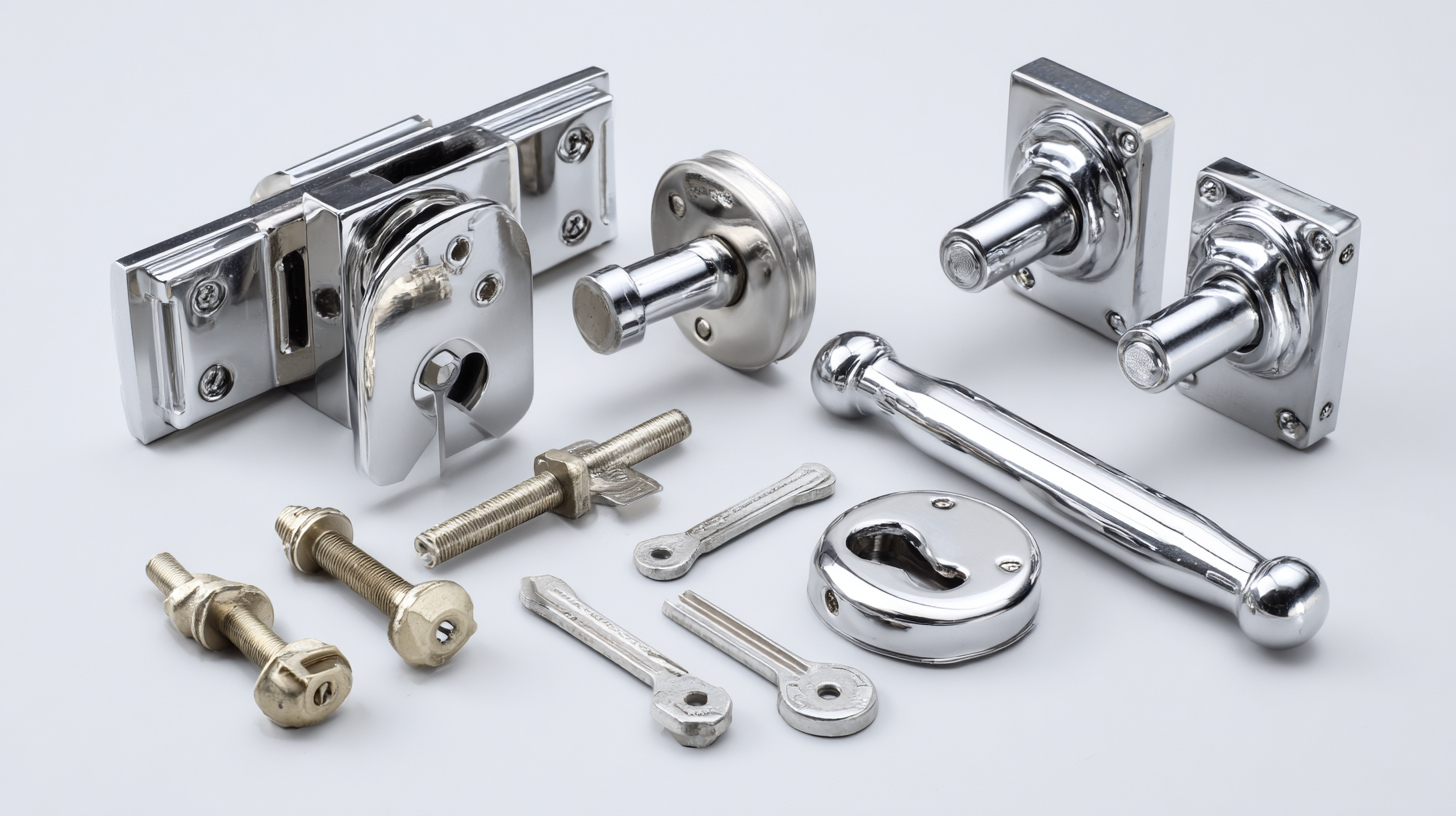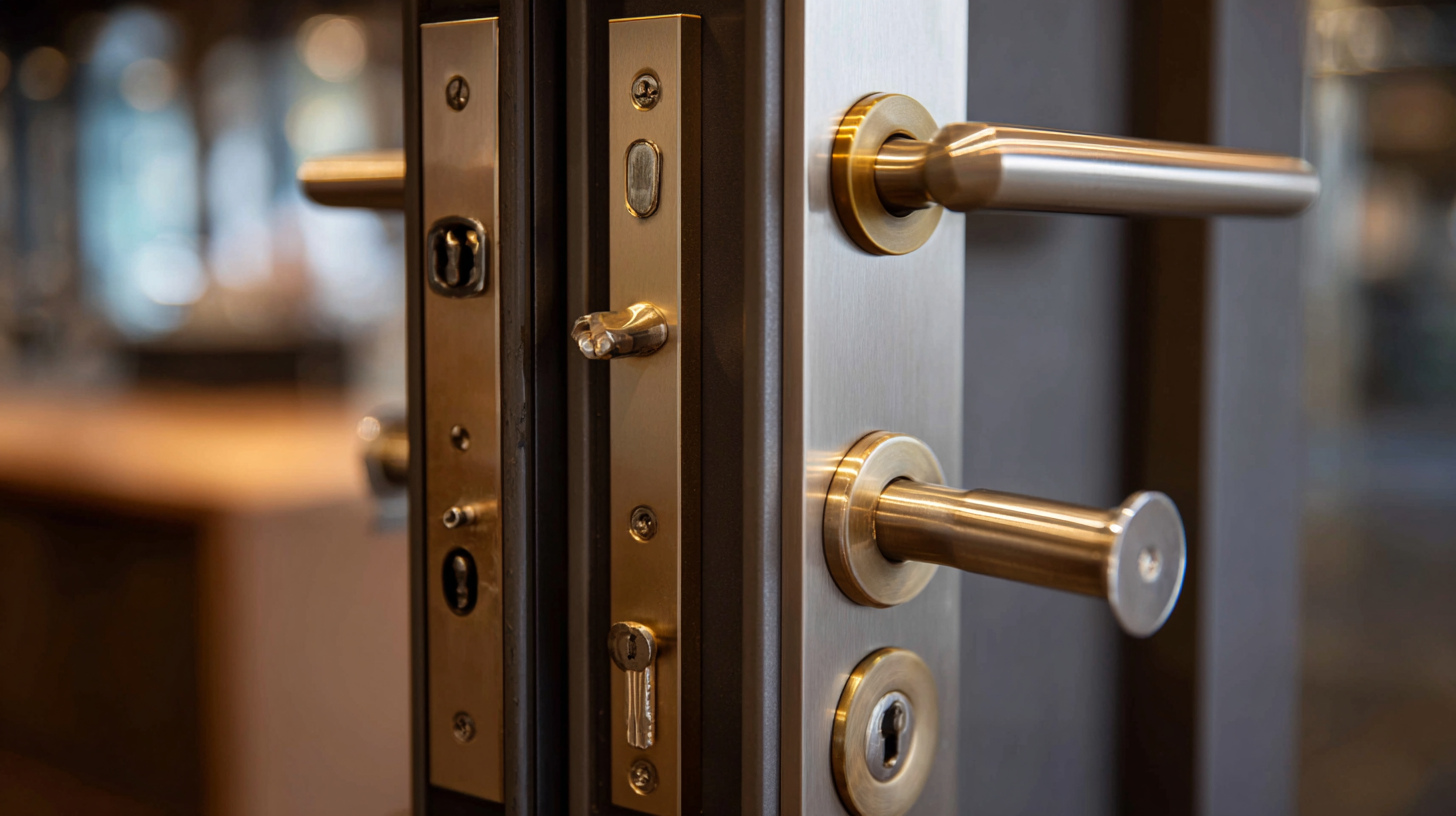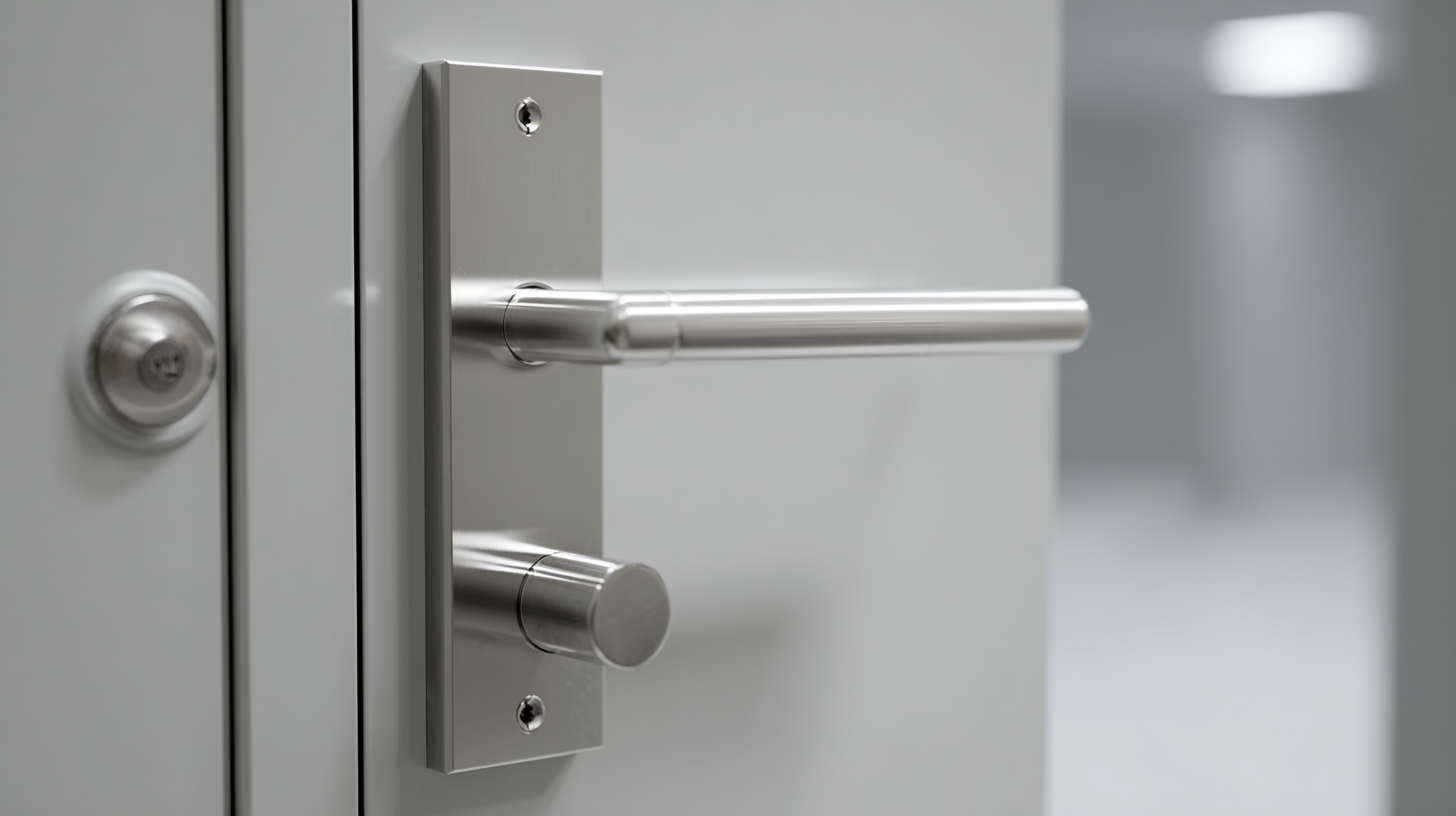When selecting commercial door hardware, it's crucial to understand the unique demands of your business environment. According to a report by MarketsandMarkets, the global market for commercial door hardware is expected to reach $10.68 billion by 2025, growing at a CAGR of 4.8%. This growth is driven by the increasing need for security and accessibility in commercial spaces. Choosing the right hardware not only enhances the aesthetic appeal of your premises but also ensures compliance with safety regulations, such as the Americans with Disabilities Act (ADA). With various options available, from locking mechanisms to materials, businesses must evaluate their specific needs and the potential impact of their choices on operational efficiency and security. This guide aims to equip decision-makers with the vital knowledge required to navigate the complexities of commercial door hardware, ensuring they make informed, strategic choices that align with their business objectives.

When selecting commercial door hardware, there are several key factors to take into consideration to ensure your choice meets your business's specific requirements. Firstly, the type of facility will determine the style and functionality of the hardware. For instance, high-traffic areas may require more durable materials that can withstand constant use, while a more upscale setting might favor aesthetics alongside functionality. Understanding the environment helps prioritize features like security, ease of use, and compliance with safety regulations.
Another critical factor is the compatibility of the hardware with existing door systems. It's essential to assess the size, weight, and swing direction of your doors to choose hardware that can effectively support them. Additionally, consider the locking mechanisms; electronic locks may offer enhanced security and convenience. Furthermore, if the hardware needs to accommodate accessibility standards, selecting options that comply with ADA requirements is crucial. By taking the time to evaluate these aspects, you can ensure that your commercial door hardware not only enhances security but also fits seamlessly into your operational space.

When selecting the right commercial door hardware for your business, understanding the essential types available is crucial. Various applications require specific hardware solutions; for instance, offices might prioritize access control systems, while retail spaces may need robust locking mechanisms. Key hardware types include electronic locks, which offer advanced security features, and biometric readers that ensure only authorized personnel can gain access. For businesses valuing flexibility, multi-technology readers can accommodate various credential types, enhancing both security and user convenience.
**Tips:** When choosing door hardware, consider the specific security demands of your business environment. For higher traffic areas, opt for durable locks and access control systems that can withstand frequent use. Additionally, ensure that the hardware complies with local building codes and industry standards to maintain safety and operational efficiency.
In industries such as healthcare or education, specialized hardware, such as panic devices and automatic operators, are essential. Adapting your choice to fit the specific challenges of your sector can significantly enhance both safety and usability. Take the time to evaluate your unique business needs and consult with professionals to guide you through the decision-making process.
| Type of Hardware | Description | Best Applications | Material Options |
|---|---|---|---|
| Panic Bars | Emergency exit device allowing quick egress | High-traffic locations, schools, hospitals | Steel, Aluminum |
| Electronic Locks | Keyless entry using keypads or RFID | Offices, storage units, hotels | Plastic, Metal |
| Mortise Locks | Locks installed into the door, providing strength | Commercial buildings, institutions | Brass, Stainless Steel |
| Push-Pull Hardware | Hardware that facilitates easy opening | Restaurants, retail stores | Aluminum, Brass |
| Drop Bolts | Bolts that drop into a receiver for added security | Warehouse doors, exterior doors | Steel, Stainless Steel |
When selecting commercial door hardware, ensuring durability and security is paramount for any business. According to a report by the Freedonia Group, the demand for durable door hardware is projected to grow by 4.2% annually through 2025, underscoring the importance of investing in quality materials. One key tip is to opt for hardware made from high-grade materials, such as stainless steel or solid brass, which offer enhanced resistance to wear and tear as well as corrosion. This not only extends the lifespan of the hardware but also ensures better overall performance in high-traffic environments.
Another critical aspect to consider is the security features integrated into the door hardware. The Security Industry Association reports that 27% of commercial break-ins occur through unsecured or improperly secured doors. Investing in hardware that includes advanced locking mechanisms, such as electronic access controls or smart locks, can significantly reduce the risk of unauthorized access. Additionally, businesses should assess the level of customization offered by manufacturers, allowing for tailored solutions that meet specific security needs. By focusing on these factors, businesses can make informed decisions that enhance both the security and durability of their door hardware choices, protecting their assets and ensuring a safe environment for employees and customers alike.
When selecting commercial door hardware, it’s essential to strike a balance between aesthetics and functionality. A well-designed commercial space not only enhances the customer's experience but also reflects the brand's identity. According to a report by the American Institute of Architects, nearly 75% of building owners believe that design significantly influences operational efficiency. This shows that investing in aesthetically pleasing door hardware can boost overall business performance.
Functionality should not be compromised in favor of aesthetics. For example, the durability of door materials and hardware is paramount, especially in high-traffic areas. A study by the Door and Hardware Institute highlights that 80% of commercial doors experience wear and tear within the first year of installation, emphasizing the need for robust and reliable products. Choosing materials that combine style with strength, such as stainless steel or reinforced fiberglass, can ensure longevity without sacrificing visual appeal. Thus, businesses should seek out door hardware solutions that not only look good but also provide necessary security and durability for daily operations.
When selecting commercial door hardware, understanding compliance and safety standards is paramount for any business. These standards are often dictated by local building codes, fire safety regulations, and accessibility laws, like the Americans with Disabilities Act (ADA) in the United States. Businesses must ensure that their door hardware meets these requirements to create a safe environment for employees and customers alike. For instance, doors must be equipped with proper locking mechanisms that comply with fire exit regulations, ensuring that they can be easily opened in emergencies.
Furthermore, it is crucial to consider the durability and functionality of door hardware in relation to safety. High-traffic areas may require heavy-duty options that can withstand frequent use while maintaining compliance with safety standards. Choosing hardware that is certified by recognized organizations, such as Underwriters Laboratories (UL) or the American National Standards Institute (ANSI), can provide assurance that the products meet essential safety benchmarks. By prioritizing compliance and safety in your selection process, your business not only adheres to regulations but also enhances the overall security and accessibility of your premises.
